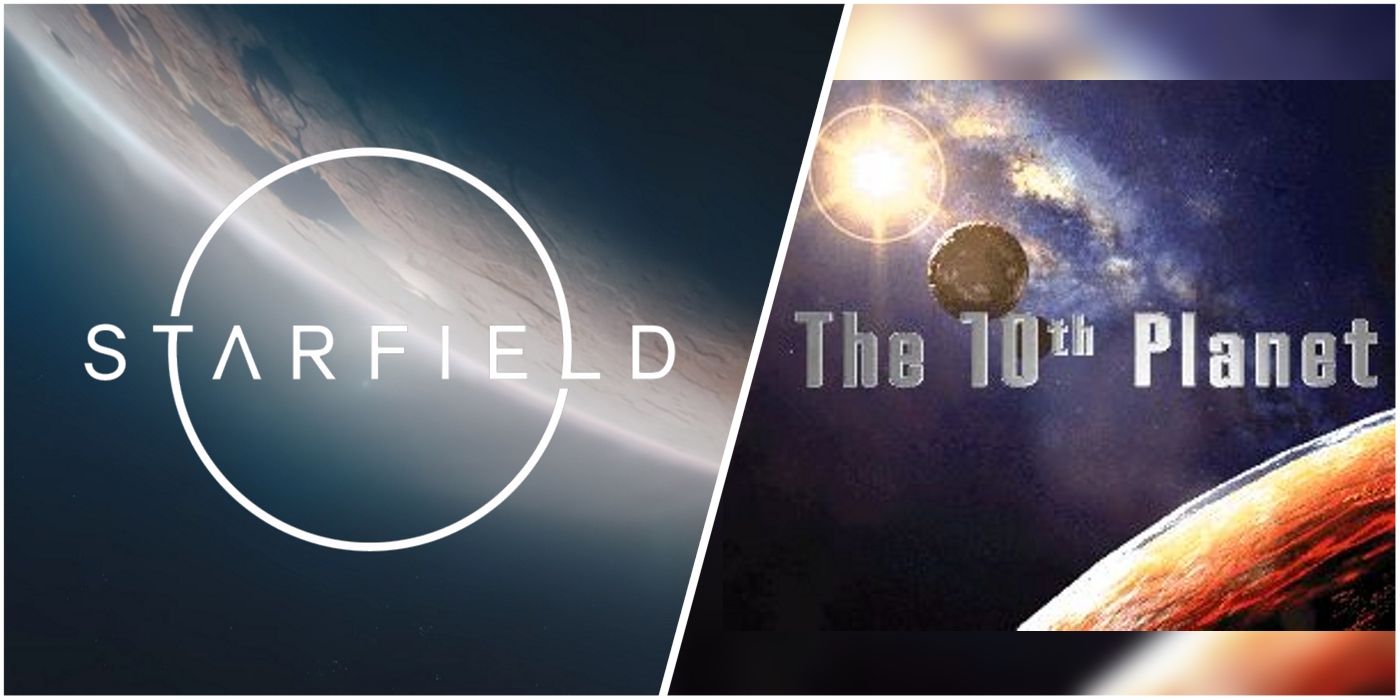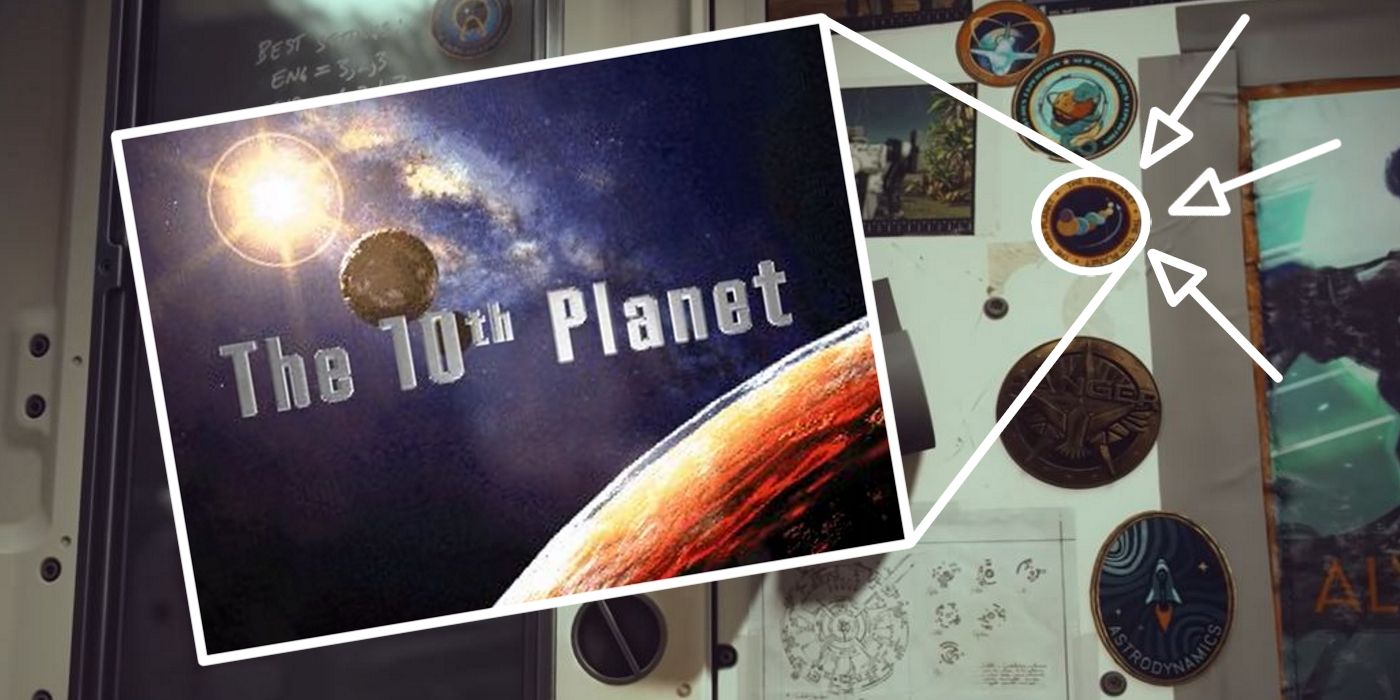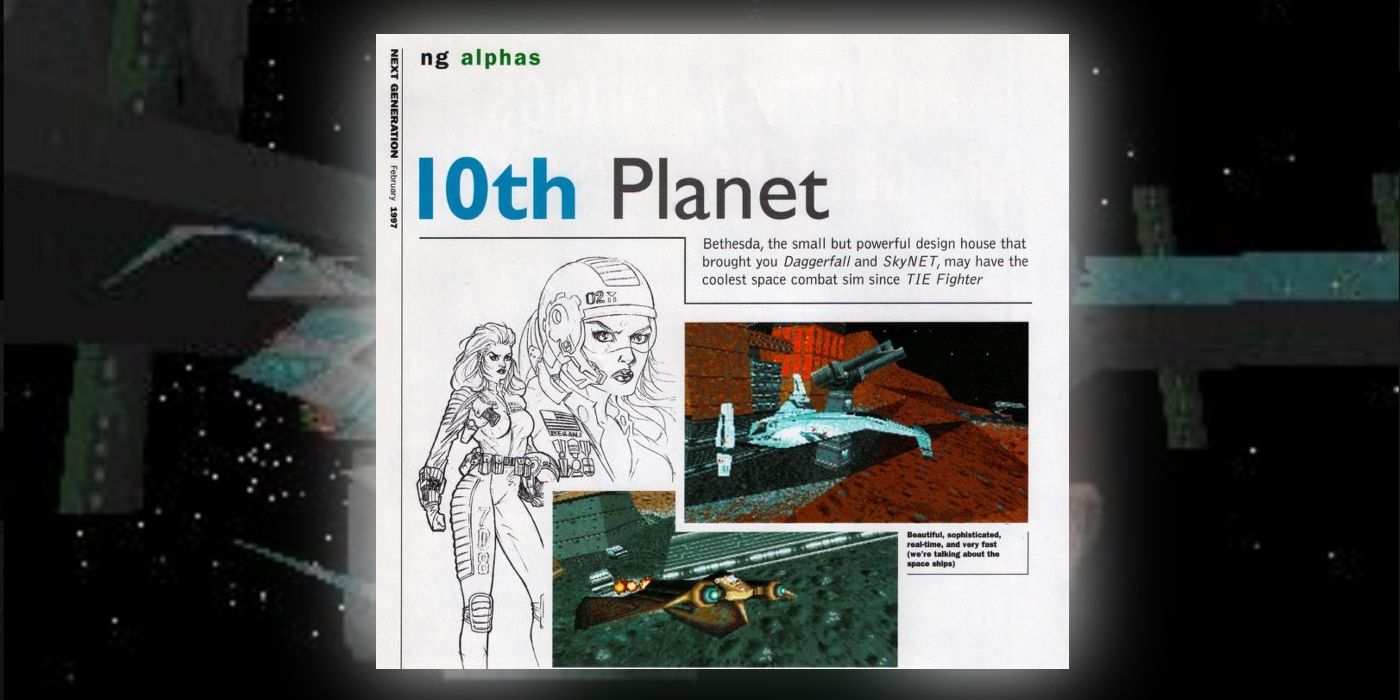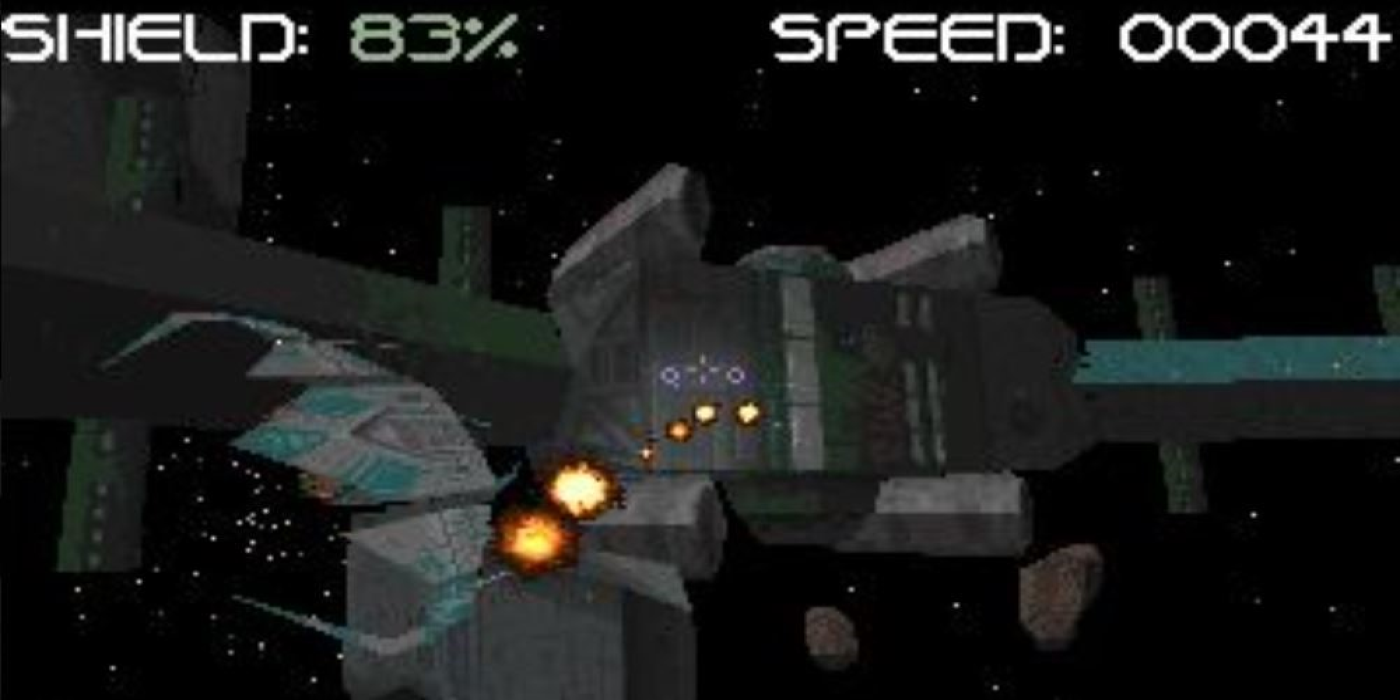While the hype for Starfield is enormous as it's Bethesda's first new IP in 25 years, it's not the company's first space game. In fact, long before genre-defining titles like Skyrim came out of the studio, it worked on space combat simulator The 10th Planet. Unfortunately for this title, however, it never released. According to Bethesda, the game would release in September 1997, but this never came to fruition. Unfortunately, there is no concrete answer as to why it stopped production, despite Bethesda releasing other titles during its development, but production schedules and over-ambition may have played a part.
The 10th Planet is an interesting game not only in the context of Starfield but also of the other games at the time. It came hot on the heels of Daggerfall and Terminator: SkyNET. Both of these were incredibly successful titles for the company. Daggerfall is the largest Elder Scrolls game by map size (even in 2021) and Terminator: SkyNET was a fantastic adaptation of another franchise. So, during the wait for Bethesda's highly anticipated 2022 space RPG, perhaps it's worth remembering the company's first glance at the stars.
The 10th Planet did not only bring Bethesda's prestige, however. Also working on the game was Centropolis, who made cinematics for Independence Day. This production team created amazing art and concepts for the game. This project apparently still means a lot to Bethesda in 2021, as Starfield's trailer references the lost game. All told, there was a huge amount of promise to this game, with some unlikely and impressive members of its production team. It even used a new, cutting-edge engine, which is a strategy seems to be employing with its new Creation Engine for Starfield and The Elder Scrolls 6. So, exactly why this ambitious title fell through is an interesting mystery to examine.
Comparing The 10th Planet and Starfield
The 10th Planet still apparently weighs in the mind of the Bethesda Softworks team, and Starfield's trailer demonstrates that. The majority of Starfield's E3 trailer focused on the inside of a huge spaceship that landed on an ochre planet. The camera pans across a gun-like tool, a broken space helmet, and some schematics. The camera also passes several patches on a wall. The most notable of these is a round patch with ten heavenly bodies that says The 10th Planet on it. Aside from those obvious references, the two nearest patches are a large orange one, and a smaller gray moon. These planetoids exactly match the ones in the marketing images produced for The 10th Planet.
So, despite an almost 25-year wait between The 10th Planet's original release window and Starfield's, it seems possible that Starfield could be some kind of spiritual successor to the canceled game. One interesting point of comparison is the use of engines. While it might seem strange to compare game engines developed nearly a quarter-century apart, both X-Engine and the new Creation Engine were made to house these powerful games.
What Was The 10th Planet?
Essentially, The 10th Planet was Bethesda's answer to TIE Fighter. Rather than the sweeping, procedurally crafted universe of modern Bethesda's open world games, The 10th Planet was explicitly a space combat simulator. In short, it focused on the battles rather than the exploration. The title was meant as a hybrid of space combat and a wargame. This ambitious stellar shooter was shown off in a couple of gaming outlets at the time.
The February 1997 edition of Next Generation magazine focuses heavily on the game. Helpfully, much of Next Generation's catalog is largely archived online. This particular issue looked at the unparallaled power of the X-Engine. In particular, its flexibility was apparently able to cover racing sims, Daggerfall, and this space game. The game used cutting-edge "Phong" shading to create gorgeous and atmospheric visuals rendered in real time.
Alongside a powerful engine, the collaboration with production company Centropolis was a huge win for Bethesda. This company was responsible for classic films like Stargate, Independence Day, Godzilla, The Day After Tomorrow, and 2012. The team was working on the plotline and alien nations for The 10th Planet, combining prestige cinema narrative tendencies with Bethesda's great gaming track record. It all looked incredibly promising, which makes its cancellation all the more tragic.
What Happened To The 10th Planet?
Unfortunately, some of the most exciting games just don't work out. Bethesda has never confirmed exactly what led to the game being shelved. However, several elements were stacked against it from the start. What seems most likely is that conflicting schedules and maybe a touch of overambition led to the game's downfall. In the Next Generation article, The 10th Planet's producer mentioned some of the game's development delays.
According to the interview, Bethesda slowed development on the title to assign more resources to Daggerfall at its release. Furthermore, Centropolis was in charge of the game's entire story and the multi-million dollar Independence Day. Centropolis also worked on the 1998 Godzilla remake, and the difficult schedules of Hollywood blockbusters could have made involvement in one of the most ambitious space simulators very difficult.
The Phong lighting engine mentioned earlier might have played a part. Although this amazing lighting technique became an industry standard, it only entered general usage in 1999 with Sega's Hikaru arcade system. Most home hardware was not capable of running Phong shading, which could run diffuse, ambient, and specular shading. Phong lighting also rendered pixel-by-pixel. Despite these incredibly taxing elements, The 10th Planet was scheduled for a September 1997 home PC release. This date was 7 years before even a reduced version of this shading was brought to PC with Doom 3.
Despite a lack of concrete information, it is possible that the busy schedules of two very high-profile studios and slightly over-ambitious technical aspirations contributed in some way.
Starfield will release on the 11th of November 2022 on PC and Xbox Series X/S.




